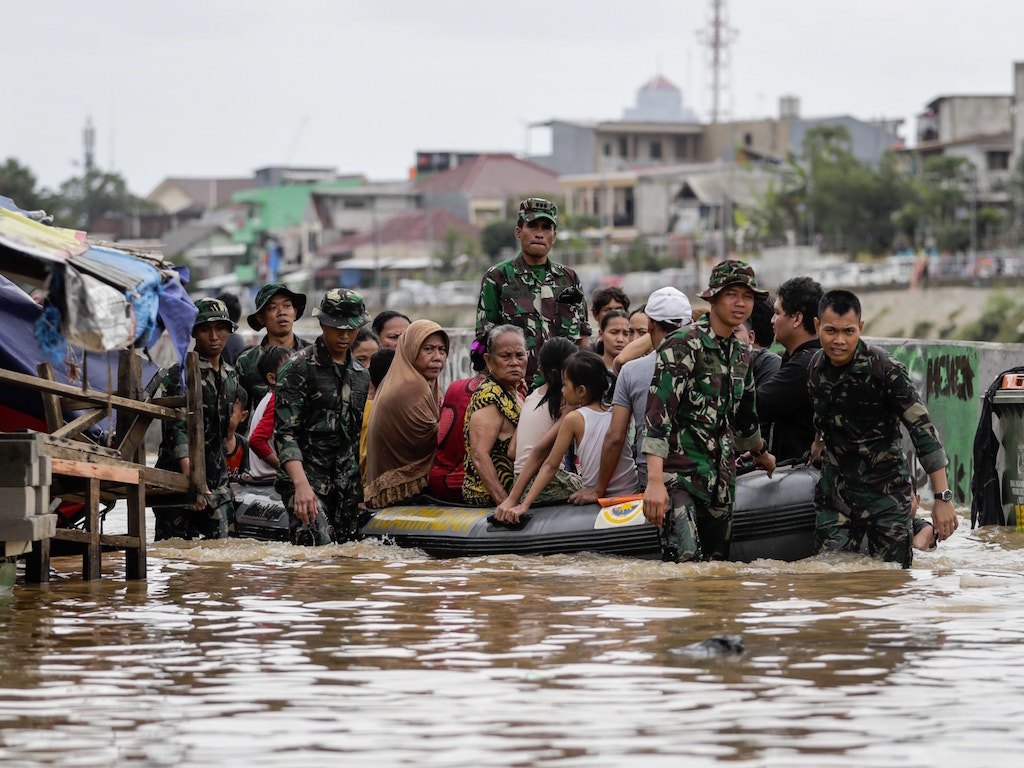2 Mins Read
Torrential rain in the Indonesian capital Jakarta has caused flash floods, killing at least 30 people and forcing thousands to evacuate and move into temporary shelter. This is the city’s most intense period of rainfall since record-keeping began over two decades ago, and is predicted to continue to persist into the rest of the week, threatening the lives and homes of over 30 million people within the Jakarta and neighbouring metro areas. Coupled with the threat of rising sea levels and global warming as a result of anthropogenic climate change, the Indonesian capital is currently one of the fastest sinking major cities in the world.
As of Thursday 2nd January, flash floods caused by torrential rain has left at least 30 people dead and 62,000 homeless in Jakarta, the authorities reported. Thousands continue to wait on their rooftops for rescue as the military are being sent in to help evacuate communities from the disaster.
Since Tuesday, the Indonesian capital has been battling the extreme weather as the megacity experienced its most intense period of rainfall since record-keeping began in 1996. According to the National Agency for Disaster Management (BNPB), the deaths were primarily caused by hypothermia, drowning and landslides, as well as being electrocuted by power lines. With thunderstorms and flooding set to persist into the rest of this week, much is at stake for the population of 30 million inhabiting Jakarta and neighbouring towns.
“The rain falling on New Year’s Eve is not ordinary rain,” said the agency. The disaster relief authorities added that the intensity of the rain was due to the monsoon season, high amount of water vapour in the air as well as delays in flood alleviation projects in recent months.
This is not the first time the capital has battled extreme flooding as a result of unpredictable weather patterns fuelled by our climate crisis. In 2007, more than 50 people died in one of Jakarta’s deadliest floods in history.
This devastating disaster has shed light on the urgent need for Indonesian authorities to take action on climate mitigation policies and implement weather resilient infrastructure. Around 40% of Jakarta lies below sea level, and while authorities have attempted to alleviate flooding through proposed projects, illegally dug wells and the climate crisis have exacerbated the impact of natural disasters, causing the city to sink faster than any other large city in the world.
Speaking to Reuters, Daniel, whose neighbourhood became waterlogged in the past two days, pleaded the government to make a bigger effort to mitigate the impact of the floods. “Take the right action please, look at what is happening now, bring the situation back to normal,” he said.
Lead image courtesy of Mast Irham / EPA / Shutterstock.




